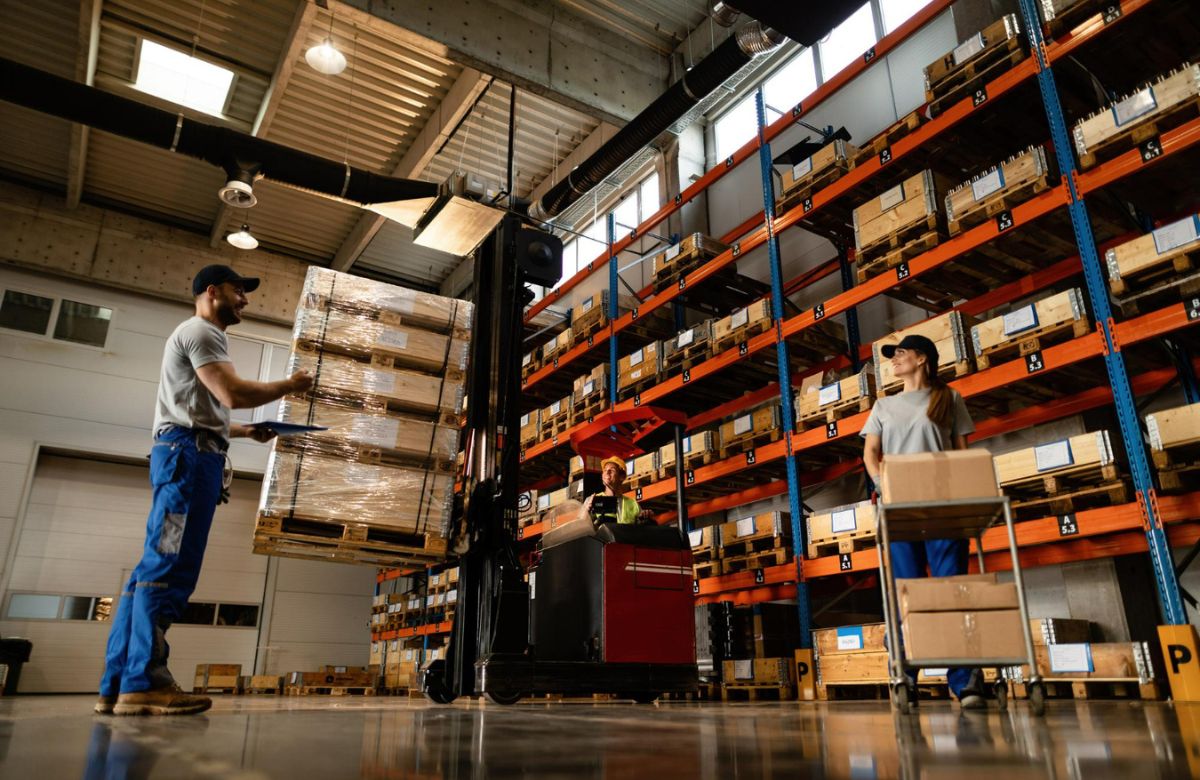
Inventory Accuracy and Its Impact on Profitability in Bangalore Warehousing
In the bustling business landscape of Bangalore, warehousing plays a crucial role in ensuring the seamless flow of goods. One of the pivotal aspects that often gets overlooked is inventory accuracy. With numerous warehouses in Bangalore handling vast amounts of stock on a daily basis, maintaining precision in inventory counts is critical. Even small discrepancies can snowball into substantial losses over time. By leveraging automation and streamlining processes, warehouses can improve inventory accuracy and drive greater profitability. Accurate warehouse inventory fuels efficient operations, optimal product availability, and satisfied customers. In this thriving warehousing industry in Bangalore, inventory accuracy is a key metric that directly impacts the bottom line.
The Importance of Inventory Accuracy
What is Inventory Accuracy?
Before we delve into its significance, let’s understand what inventory accuracy is. Inventory accuracy refers to the precision of your inventory data, including the quantity, location, and status of all items in your warehouse. It is essential for knowing exactly what you have on hand and where it is stored.
Why is it Important?
Inventory accuracy is not just about maintaining neat and tidy shelves; it can have a profound impact on your bottom line. Here’s why it’s crucial:
- Fulfilling Customer Orders: When you have accurate data about your inventory, you can fulfill customer orders promptly and avoid disappointing your clients with backorders or delayed deliveries.
- Optimizing Storage Space: Accurate inventory data helps you utilize your storage space efficiently. This can prevent unnecessary expenses related to leasing additional space or overstocking.
- Reduction in Shrinkage: Accurate inventory records can help you identify discrepancies and reduce shrinkage due to theft or damage.
- Financial Management: Accurate inventory data is crucial for financial reporting and ensuring that your resources are being used wisely.
- Demand Forecasting: Reliable inventory data allows you to make informed decisions about ordering and restocking, ensuring that you have the right products in stock to meet customer demand.
- Regulatory Compliance: Many industries have specific regulations regarding inventory accuracy, and non-compliance can lead to fines and legal issues.
The Impact of Inaccuracy
On the flip side, inventory inaccuracy can have dire consequences for your business:
- Lost sales due to stockouts
- Overstocking, leading to holding costs
- Increased labor costs for stock checks and corrections
- Reduced customer satisfaction
- Inaccurate financial reports
- Potential compliance issues
Inventory Management Tools and Technologies
Barcoding and RFID
To achieve high inventory accuracy, many warehouses in Bangalore rely on advanced technologies such as barcoding and Radio Frequency Identification (RFID). These technologies enable real-time tracking and minimize human error in data entry.
Warehouse Management Systems (WMS)
Warehouse Management Systems (WMS) are software solutions that help in automating and optimizing various warehouse processes. They provide a centralized platform for managing inventory, orders, and shipments. WMS not only enhances inventory accuracy but also improves overall warehouse efficiency.
Cloud-Based Solutions
Cloud-based inventory management solutions are becoming increasingly popular in Bangalore warehousing. They offer flexibility and accessibility, allowing you to manage inventory remotely. These systems often include features for demand forecasting and analytics, further improving accuracy.
Challenges in Maintaining Inventory Accuracy
Human Error
No matter how advanced the technology, human error can still be a factor. Data entry mistakes, misplacement of items, and mislabeling can all contribute to inventory inaccuracies.
Lack of Training
In some cases, warehouse staff may not be adequately trained in using the technology and systems, leading to errors and inaccuracies.
System Failures
Even the most advanced systems can experience technical glitches or failures. This can disrupt the flow of information and lead to inaccuracies.
Seasonal Demand
In Bangalore, certain industries may experience seasonal variations in demand. Predicting and preparing for these fluctuations can be challenging and affect inventory accuracy.
How to Improve Inventory Accuracy
Staff Training and Education
Investing in proper training and education for your warehouse staff is crucial. They should be proficient in using the technology and systems in place.
Regular Audits and Cycle Counts
Periodic audits and cycle counts help in identifying and rectifying inaccuracies. These physical checks can uncover discrepancies that might be missed in automated systems.
Data Integration
Integrate your inventory management system with other business systems like accounting and customer relationship management (CRM). This ensures that all data is synchronized and up-to-date.
Continuous Monitoring
Implement continuous monitoring of your inventory. This involves real-time tracking and regular updates to maintain accuracy.
Vendor and Supplier Communication
Maintain open communication with your vendors and suppliers. Timely updates on stock availability and delivery schedules can significantly improve inventory accuracy.
Case Study: Bangalore E-commerce Giant
Let’s take a closer look at a case study to understand the real-world impact of inventory accuracy. In Bangalore, a leading e-commerce company significantly improved its profitability by focusing on inventory accuracy. They implemented cutting-edge technology, invested in staff training, and improved communication with suppliers.
The results were impressive:
- Reduced Stockouts: Inventory accuracy reduced the instances of stockouts, leading to increased sales and customer satisfaction.
- Optimized Storage: By knowing exactly what they had in stock, they maximized their storage space, reducing costs.
- Cost Savings: Fewer errors meant lower operational costs, and the company was able to allocate resources more efficiently.
- Better Forecasting: Accurate inventory data allowed for more precise demand forecasting, leading to better inventory management.
The Future of Inventory Accuracy in Bangalore Warehousing
As technology continues to advance, the future of inventory accuracy in Bangalore’s warehousing industry looks promising. Machine learning and artificial intelligence are being integrated into inventory management systems, allowing for predictive analytics and even greater accuracy. The key will be for businesses to adapt and embrace these innovations to stay competitive in the dynamic Bangalore market.
Inventory accuracy is not just about neat shelves and tidy records; it’s a critical factor in ensuring the profitability of Bangalore’s warehousing industry. From meeting customer demand to optimizing storage space and reducing operational costs, inventory accuracy has a profound impact. Embracing technology and investing in staff training can make a significant difference. In the ever-evolving landscape of Bangalore’s warehousing, maintaining high inventory accuracy is the key to staying ahead.



